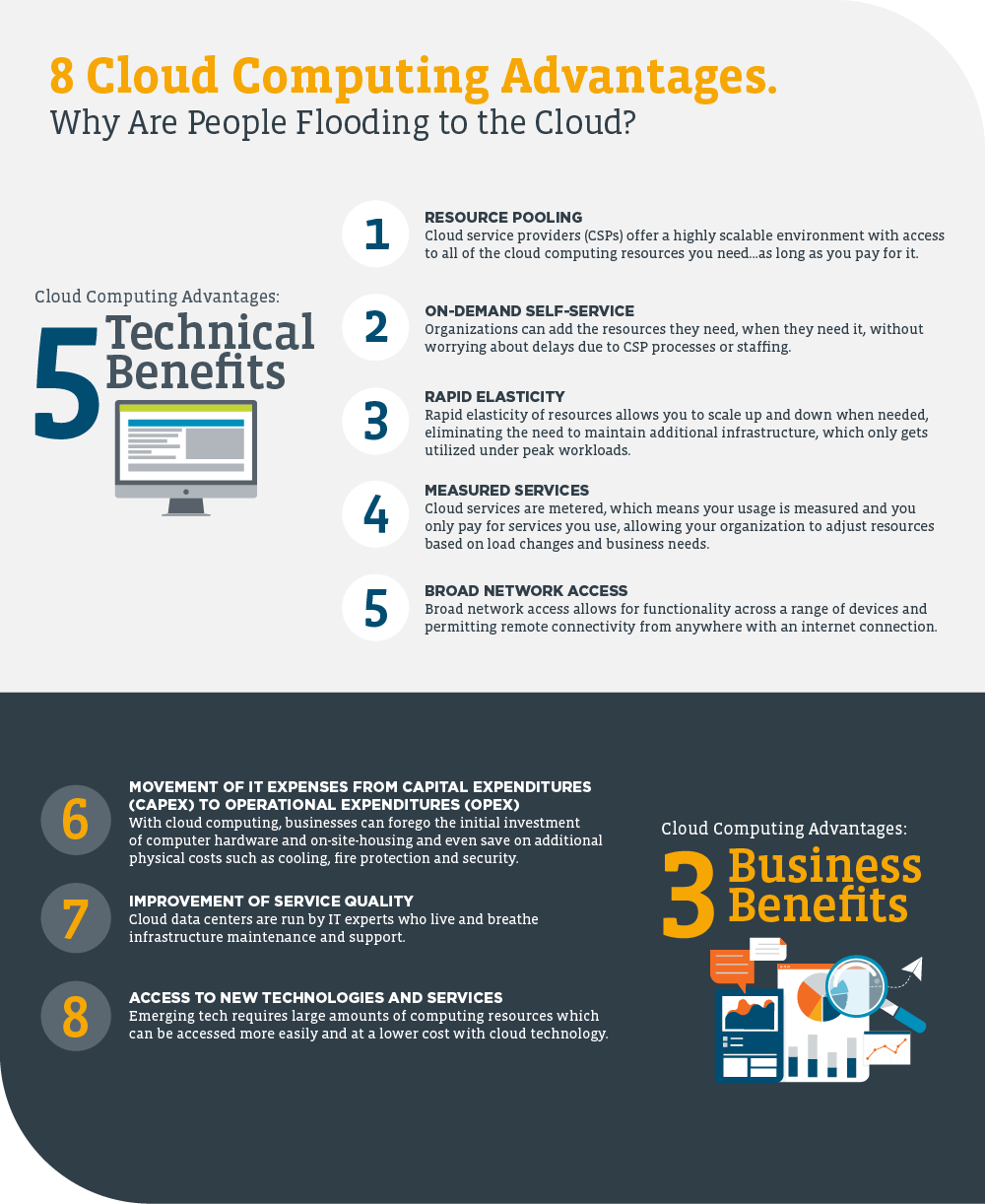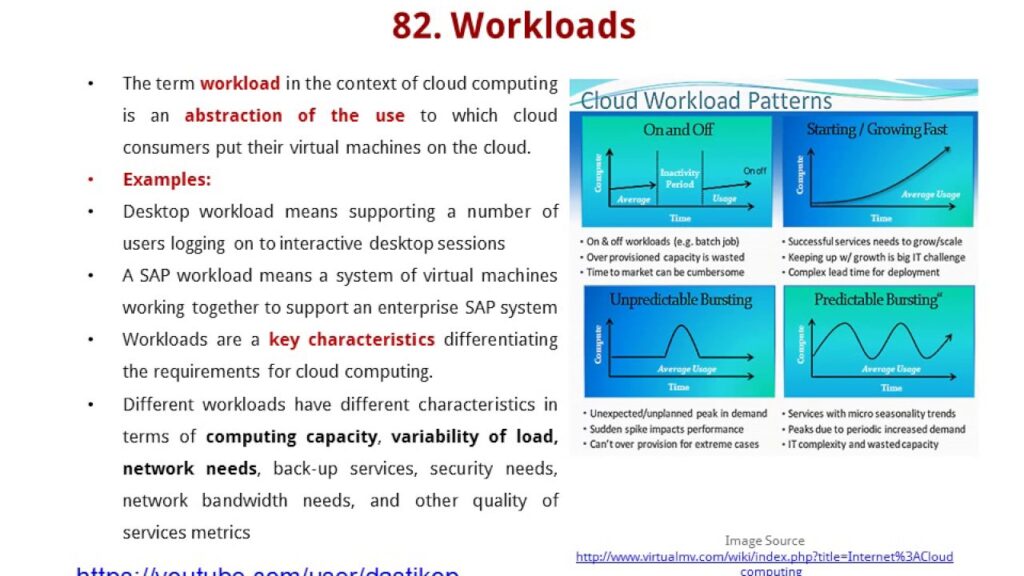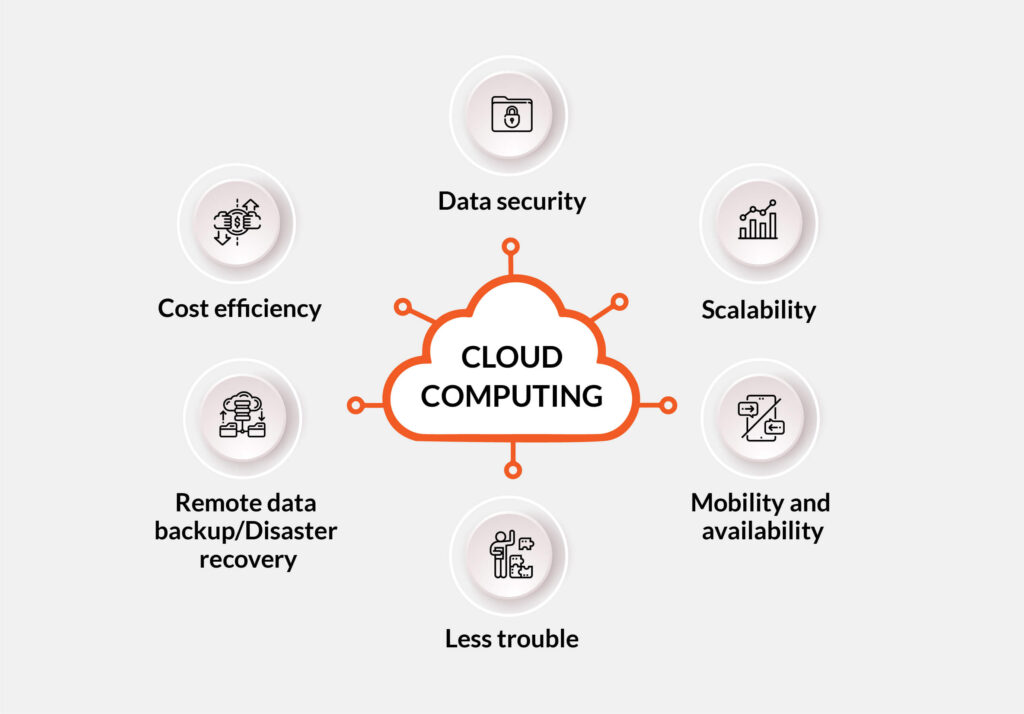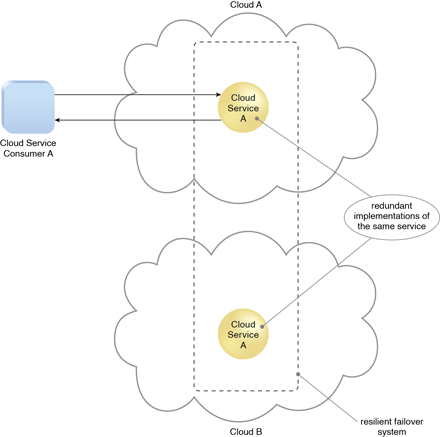In today’s digital age, networking has become an essential aspect of modern businesses. With the rise of remote work and online communication, companies need to have a reliable and efficient way to connect their devices and share data. This is where cloud computing comes in. Cloud computing is a technology that allows users to access and store data and applications over the internet, rather than on a local server or personal computer. But what are the benefits of using cloud computing in networking?
Firstly, cloud computing provides businesses with scalability and flexibility. With traditional networking methods, businesses would need to invest in expensive hardware and software to support their networking needs. However, with cloud computing, businesses can easily scale their networking capabilities up or down based on their needs, without having to worry about purchasing new equipment. This means that businesses can save money on hardware costs and adapt their networking capabilities to meet changing business requirements. Additionally, cloud computing allows businesses to access their data and applications from anywhere with an internet connection, making remote work and collaboration more accessible and efficient than ever before.

What Are the Benefits of Using Cloud Computing in Networking?
Cloud computing is an innovative and revolutionary way to manage, store, and access data and applications. It has revolutionized the way businesses and individuals access and share information. Cloud computing is a distributed computing system that makes it possible to access data and applications stored in the cloud from any device, anywhere in the world. With cloud computing, businesses have the ability to access and share data and applications with a wide variety of users, at anytime and from any location.
Data Security and Reliability
Cloud computing is a secure and reliable way to store and access data. Cloud computing is designed with built-in security features that ensure that data is kept safe and secure. This protects data from unauthorized access and malicious attacks. Additionally, cloud computing provides reliability and scalability, making it an ideal solution for businesses that need to increase their storage capacity. Cloud computing is also designed to ensure that data and applications are always available, regardless of the user’s location or device.
Cloud computing also helps businesses reduce their IT costs by eliminating the need to purchase and maintain expensive hardware, software, and infrastructure. With cloud computing, businesses don’t have to worry about the cost of maintaining their own IT infrastructure. Instead, they can focus on their core business operations and maximize their resources.
Flexibility and Scalability
Cloud computing is a highly flexible and scalable solution for businesses. It allows businesses to quickly and easily scale up or down their resources, as needed. This means that businesses can quickly and easily add or remove resources as their needs change. Additionally, cloud computing allows businesses to access and use their data and applications from any device, anywhere in the world. This makes it easy to collaborate with other users and access data and applications whenever and wherever they need to.
Cloud computing also allows businesses to quickly and easily deploy new applications and services. This is especially helpful for businesses that need to quickly launch new products and services. With cloud computing, businesses can quickly and easily launch new applications and services without having to purchase and maintain their own IT infrastructure.
Cost Savings
Cloud computing is an affordable solution for businesses. By eliminating the need to purchase and maintain expensive hardware, software, and infrastructure, businesses can save money. Furthermore, cloud computing allows businesses to pay only for the resources they use, helping them save money on their IT costs. Additionally, businesses can save money on staffing and training costs, as cloud computing eliminates the need to hire and train IT professionals to manage their IT infrastructure.
Cloud computing also helps businesses save money on maintenance costs. With cloud computing, businesses don’t have to worry about maintaining their own IT infrastructure. Instead, they can focus on their core business operations and maximize their resources.
Frequently Asked Questions
Cloud computing provides organizations with a range of benefits, including cost savings, scalability, and increased security. This article will answer some common questions about the benefits of using cloud computing in networking.
What is the Benefit of Using Cloud Computing in Networking?
The primary benefit of using cloud computing in networking is cost savings. By moving to the cloud, organizations can save on hardware and software costs as cloud services are billed on a pay-as-you-go basis. Additionally, cloud services are often easier to deploy and manage than on-premises hardware and software solutions, resulting in further cost savings.
Another key benefit of using cloud computing in networking is scalability. Cloud networks are designed to scale on demand, allowing organizations to quickly and easily add or remove resources as their needs change. This makes cloud computing an ideal solution for organizations that need to quickly adapt to changing business conditions and customer demands.
What Security Benefits Does Cloud Computing Provide?
Cloud computing provides organizations with a range of security benefits. Cloud service providers offer robust security measures, such as firewalls, intrusion detection systems, and encryption, to protect customer data from unauthorized access and malicious attacks. Additionally, cloud service providers regularly update their security measures to ensure they always remain up to date.
Another security benefit of cloud computing is disaster recovery. Cloud services are designed to remain online and available, even in the event of a natural disaster or other unexpected event. This allows organizations to quickly recover from major outages and resume operations with minimal disruption.
Does Cloud Computing Require Special Hardware or Software?
No, cloud computing does not require any special hardware or software, making it an ideal solution for organizations looking to reduce IT costs. All that is needed to access cloud services is an internet connection. Additionally, most cloud service providers offer their customers an easy-to-use web interface, allowing them to manage their cloud services without the need for any specialized training.
What Are the Drawbacks of Cloud Computing?
The primary drawback of cloud computing is that it can be difficult for organizations to ensure the security of their data. Cloud service providers are responsible for the security of their networks, but organizations are ultimately responsible for their own data security. Additionally, cloud services are typically more expensive than on-premises solutions, especially for organizations that require large amounts of storage or processing power.
How Can Organizations Ensure the Security of Their Data in the Cloud?
Organizations can ensure the security of their data in the cloud by properly configuring their cloud services and implementing additional security measures. Cloud service providers typically offer a range of security options, such as access control, encryption, and intrusion detection. Additionally, organizations can implement additional measures, such as data loss prevention software and two-factor authentication. By taking these steps, organizations can ensure their data is secure in the cloud.

In conclusion, the benefits of cloud computing in networking cannot be overstated. Cloud computing provides businesses with the flexibility and scalability they need to stay competitive in today’s fast-paced business environment. By leveraging the power of the cloud, businesses can enjoy lower costs, increased efficiency, and enhanced security. Additionally, cloud computing allows for seamless collaboration and communication, making it easier for teams to work together and achieve their goals.
In summary, cloud computing in networking is a game-changer for businesses of all sizes. With its numerous benefits and advantages, it has become a critical component of modern-day networking. As technology continues to evolve, it is essential for businesses to stay current and adapt to the latest trends. By embracing cloud computing in their networking strategies, businesses can position themselves for success and thrive in today’s digital age.



